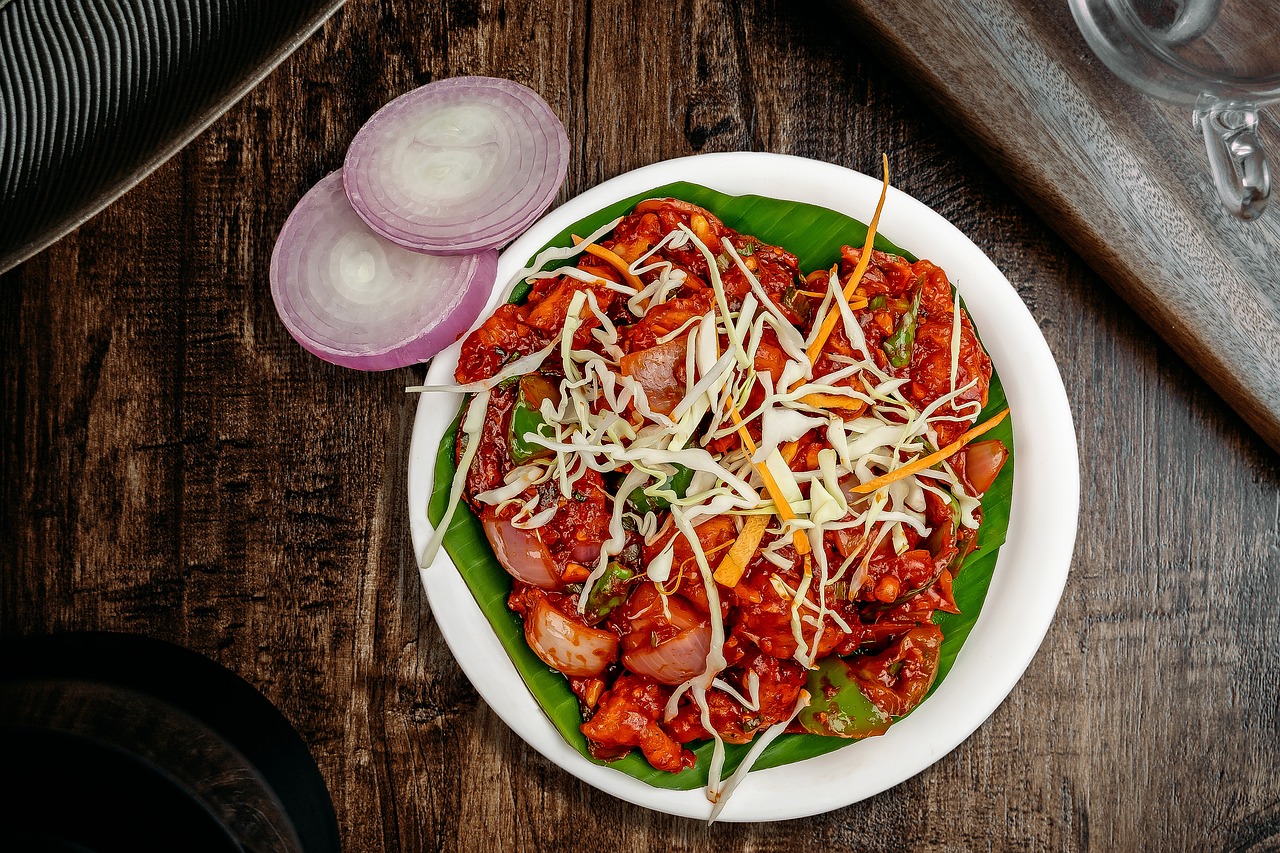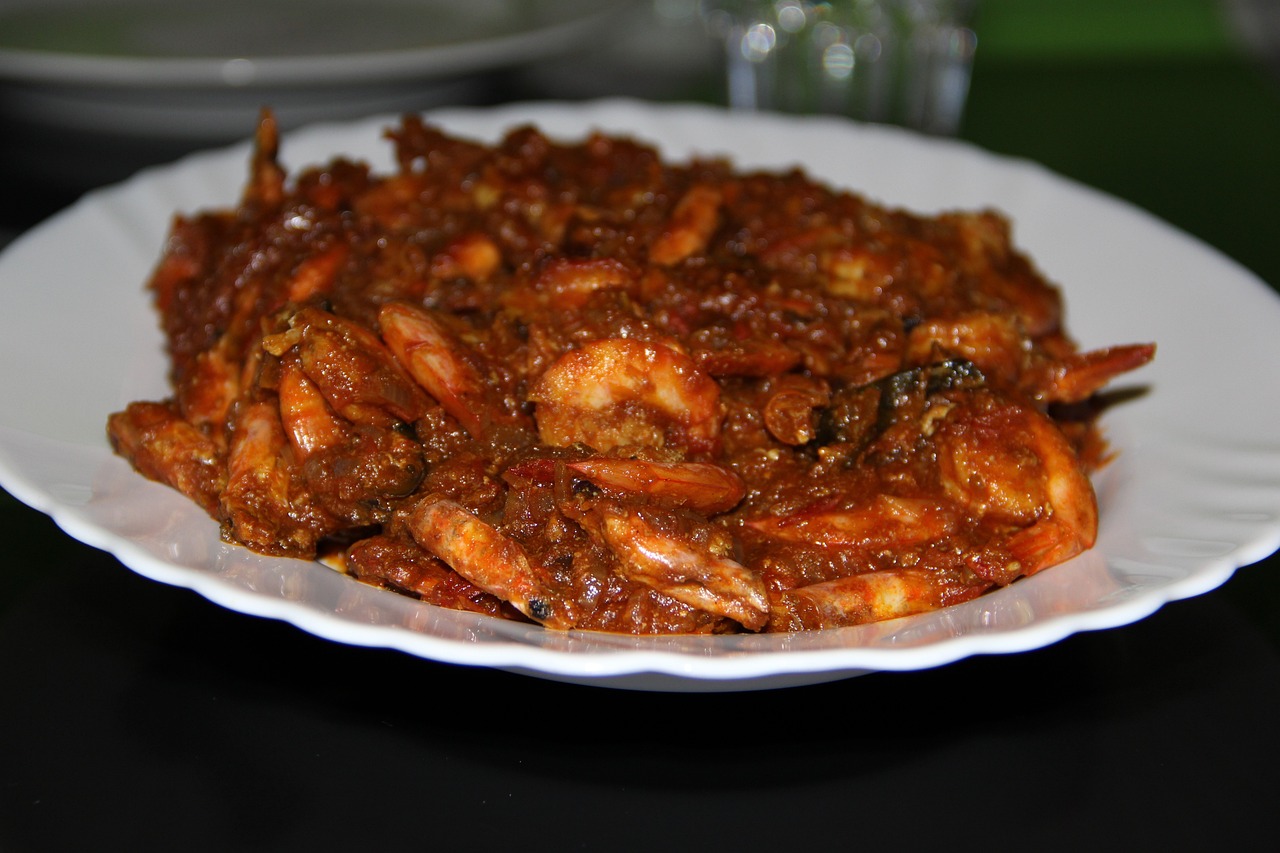Masoor Dal Recipe: Delicious Lentil Soup Dish from Indian Cuisine

Masoor Dal, a delightful lentil soup dish originating from the vibrant Indian cuisine, is a flavorful and nutritious meal loved by many for its rich taste and health benefits. This traditional Indian recipe offers a perfect blend of spices, lentils, and aromatic flavors that explode in your mouth, creating a symphony of taste that is both comforting and satisfying.
Ingredients for Masoor Dal
When it comes to preparing a delightful bowl of Masoor Dal, the key lies in selecting the right ingredients that infuse this traditional Indian lentil soup with rich flavors and nutritional goodness. Let's delve into the essential components that make up this beloved dish:
- Masoor Dal (Red Lentils): The star ingredient of this dish, Masoor Dal, also known as red lentils, brings a vibrant color and earthy taste to the soup.
- Onions: Sautéed onions add a sweet and savory depth to the Masoor Dal, enhancing its overall taste profile.
- Tomatoes: Fresh tomatoes contribute a tangy brightness to the soup, balancing the flavors and adding a hint of acidity.
- Ginger and Garlic: These aromatic ingredients not only infuse the dish with a warm and pungent flavor but also offer various health benefits.
- Spices (Cumin, Turmeric, Coriander, and Garam Masala): A blend of fragrant spices elevates the taste of Masoor Dal, creating a harmonious symphony of flavors.
- Green Chilies: For those who enjoy a bit of heat, green chilies bring a spicy kick to the soup, adding an element of excitement to each spoonful.
- Cilantro: Fresh cilantro leaves, when used as a garnish, provide a burst of freshness and a pop of color to the dish.
- Oil or Ghee: Cooking fat like oil or ghee is essential for sautéing the ingredients and enhancing the overall richness of the soup.
- Salt: A pinch of salt not only seasons the Masoor Dal but also helps bring out the flavors of the other ingredients.
- Water: The base of the soup, water is needed to cook the lentils to perfection and achieve the desired consistency.
By combining these carefully selected ingredients in the right proportions, you can create a bowl of Masoor Dal that is not only delicious but also packed with wholesome goodness. Each component plays a vital role in shaping the final taste and texture of this classic Indian lentil soup, making it a favorite among both vegetarians and non-vegetarians alike. So, gather your ingredients, roll up your sleeves, and get ready to embark on a culinary adventure that promises to tantalize your taste buds and nourish your body.
Steps to Prepare Masoor Dal
When it comes to preparing a delicious bowl of Masoor Dal, the process is not just about cooking; it's about infusing love and tradition into every step. Let's dive into the mesmerizing journey of creating this flavorful lentil soup that will warm both your body and soul.
1. Gather Your Ingredients: Before you embark on this culinary adventure, ensure you have all the essential ingredients at hand. From red lentils (Masoor Dal) to aromatic spices like turmeric, cumin, and coriander, each component plays a crucial role in enhancing the taste profile of this beloved Indian dish.
2. Wash and Soak the Lentils: Start by rinsing the Masoor Dal thoroughly under running water to remove any impurities. Then, soak the lentils for about 30 minutes to soften them, allowing for a quicker cooking process and a smoother texture in the final soup.
3. Saute the Aromatics: In a large pot, heat some ghee or oil and add finely chopped onions, garlic, and ginger. Let them sizzle until fragrant, releasing a tantalizing aroma that sets the foundation for the rich flavors to come.
4. Add the Spices: Once the aromatics have softened, sprinkle in a blend of ground turmeric, cumin, coriander, and perhaps a pinch of garam masala for an extra kick of warmth and depth. Stir the spices into the mixture, allowing them to bloom and create a harmonious symphony of flavors.
5. Simmer the Dal: Now, introduce the soaked Masoor Dal into the pot, along with water or broth to cover the lentils. Let the mixture simmer gently, allowing the lentils to absorb the savory broth and soften to a creamy consistency that is characteristic of a well-cooked Dal.
6. Taste and Adjust: As the Masoor Dal cooks, taste the soup and adjust the seasoning according to your preference. You can add more salt, spice, or a dash of lemon juice for a tangy twist that brightens up the overall flavor profile.
7. Garnish and Serve: To elevate the presentation and taste of your Masoor Dal, garnish it with fresh cilantro leaves, a dollop of yogurt, or a drizzle of ghee. Serve the steaming hot lentil soup with fluffy basmati rice or crispy naan bread for a complete and satisfying meal that will surely leave you craving for more.
8. Enjoy the Culinary Delight: Finally, savor each spoonful of this comforting Masoor Dal, relishing the explosion of flavors that dance on your taste buds. Let the warmth of the spices and the nourishing goodness of the lentils envelop you in a culinary embrace that celebrates the rich heritage of Indian cuisine.
Health Benefits of Masoor Dal
When it comes to the health benefits of Masoor Dal, this humble lentil soup packs a powerful nutritional punch that goes beyond just satisfying your taste buds. Let's dive into the reasons why incorporating Masoor Dal into your diet can be a game-changer for your overall well-being.
1. Rich in Protein: Masoor Dal is a fantastic source of plant-based protein, making it an excellent choice for vegetarians and vegans looking to meet their protein needs. Protein is essential for muscle growth, repair, and overall body function.
2. High Fiber Content: Fiber is crucial for digestive health, and Masoor Dal is loaded with it. Consuming an adequate amount of fiber can help regulate bowel movements, prevent constipation, and support a healthy gut microbiome.
3. Abundance of Essential Nutrients: Masoor Dal is not only a great source of protein and fiber but also contains a variety of essential nutrients such as iron, potassium, magnesium, and folate. These nutrients play vital roles in various bodily functions, from oxygen transport to nerve function.
4. Heart-Healthy: The fiber, potassium, and folate in Masoor Dal contribute to heart health by helping to lower cholesterol levels, regulate blood pressure, and reduce the risk of cardiovascular diseases. Including Masoor Dal in your diet can be a heart-smart choice.
5. Weight Management: Due to its high protein and fiber content, Masoor Dal can help you feel full and satisfied for longer periods, potentially aiding in weight management and preventing overeating.
6. Diabetes-Friendly: The low glycemic index of Masoor Dal makes it a suitable food choice for individuals with diabetes. It helps in managing blood sugar levels and provides a steady release of energy without causing spikes in blood glucose.
7. Boosts Immunity: The array of vitamins and minerals present in Masoor Dal, such as vitamin C and zinc, can help strengthen the immune system, making you more resilient to infections and illnesses.
8. Supports Bone Health: Masoor Dal contains essential minerals like calcium, phosphorus, and magnesium, which are vital for maintaining strong and healthy bones. Regular consumption of Masoor Dal can contribute to bone density and overall skeletal health.
With its impressive nutritional profile and numerous health benefits, Masoor Dal is a versatile ingredient that can enhance both the flavor and nutrient content of your meals. Whether you enjoy it as a comforting soup or pair it with rice or roti, incorporating Masoor Dal into your diet can be a delicious and nutritious choice for promoting your well-being.



 HazalVardal
HazalVardal 





